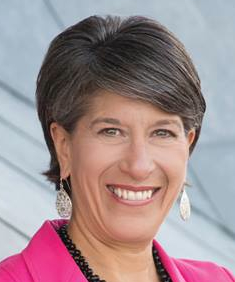While driving her teen daughters home from school, Mom asked them what they knew about "13 Reasons Why," a popular Netflix series about a teen who commits suicide. The youngest was clueless, but the older daughter definitely knew what her mom was talking about.
When Mom told the girls she didn't want them watching the show on Netflix, the "cat that ate the canary" look on her oldest daughter's face told her she was too late. Mom quickly learned that her eldest had already watched not just one episode but the entire first season. At this point, she felt like a serious mom failure had taken place right under her nose.
Apparently her daughter, along with millions of U.S. teens, found "13 Reasons Why" to be very intriguing. Some say they can relate to Hannah's problems. Others find it entertaining.
However, parents, counselors, teachers and school administrators across the country have extreme concerns about the show. They feel that it may glorify teen suicide, bullying, rape and other behaviors.
On NBC's "Today" show, Dr. Harold S. Koplewicz, psychiatrist and president of the Child Mind Institute, called for the show's immediate removal, saying teenage suicide is contagious. Koplewicz cited more than three decades of research that shows when kids watch suicide depictions on television, they're more likely to try it themselves. Sadly, they're also more likely to succeed in their attempt.
Not surprisingly, Netflix just announced a second season of the show, but with a warning card at the beginning. Reportedly, "13 Reasons Why" was the most tweeted-about show in 2017, and the viewership is exactly the audience Netflix is after.
While there are definitely some caution lights surrounding the show, it does provide some opportunities for parents to discuss the tumultuous teen years, suicide, bullying, drug abuse and dating violence.
In her post, "An Instruction Manual for Watching '13 Reasons Why' With Your Teen," therapist Jenny Spitzer includes these recommendations to parents:
- Validate feelings, whether or not you agree. Actions are up for discussion, and you have the last word. But feelings are never up for negotiation.
- Avoid telling your children their feelings aren't real. They are, in fact, more intense than the average adult's. Teens typically lack the ability to see that their problems are temporary, so everything feels like it's going to last forever. You can tell them that this is not the case until you're blue in the face - they won't get it. Often, their brains aren't wired to understand this yet.
- Don't assume they aren't communicating if they're not communicating with words. There are lots of ways that people communicate without words - through art, dance, music. People can also communicate with their behavior. Help them effectively use communication tools.
- Don't assume they know everything they say they know. Try to stay away from yes or no questions.
- Ask them to explain things to you. For example, what does bullying mean to you?
- Discuss similarities and differences between your child's experience and the experiences depicted in the show.
- Familiarize yourself with your child's school policies surrounding these issues. What policies are in place to respond to these issues? Ask about the policy regarding what school counselors can and cannot divulge to parents. Ask exactly what your school counselor would do if Hannah confided in them. Ask what they can and cannot do when they suspect a child is suffering from depression. You might be surprised.
Although it may be uncomfortable, these recommendations are great starting points for open and honest conversations. Your teen needs to hear the truth from you, and you need to hear what is on your teen's mind. Additionally, consider inviting other adults into your teen's life who share your values and have opportunities to speak into the life of your child. In those moments when they don't feel like they can talk with you, they know they have other caring adults they can go to for help.
Julie Baumgardner is president and CEO of family advocacy nonprofit First Things First. Contact her at julieb@firstthings.org.

